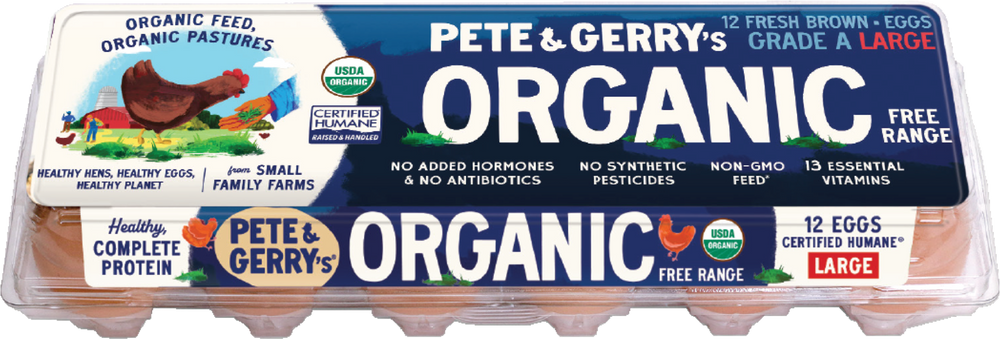Organic Eggs
Looking for a healthy, sustainable, and complete protein that checks the organic box (and then some)? Look no further: our USDA Certified Organic eggs are laid by Certified Humane® Free-Range hens roaming on open, organic pastures where they have the freedom to forage for grubs and bugs, socialize with friends, and dust bathe under sunny skies. Our family farms produce to the highest organic standards, which means never any synthetic pesticides, GMOs, antibiotics, or other “gunk”; just high-quality eggs rich in protein and essential vitamins to fuel your day, brain-boosting nutrients like choline and “good” fats like Omega-3's to keep our hearts strong.









.jpg?v=1689089697951)












